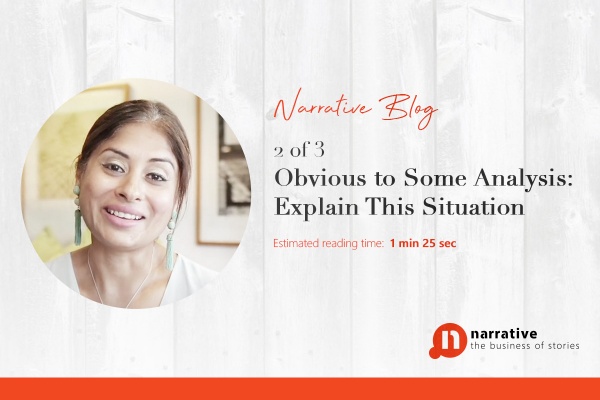Chris works as a marketing manager for an e-commerce company. Every day, her computer screen is filled with numbers that she has to make sense of.
When asked about her role in the business, she says, “I make meaning of numbers. The way I do that is by exporting those numbers from software to an Excel spreadsheet, then turning that spreadsheet into…
During the COVID-19 outbreak, I would see graphs and charts of increasing cases being shared all the time which would leave me puzzled because I would also see plenty of people violating physical distancing measures and not taking the actions they should have taken after looking at scary graphs showing the cases going up. I wondered why we were not taking action.…
Finding a data insight and believing you can now make the change happen with the insight alone, is one of the common data storytelling mistakes.
To understand this let us look at what happened with Sam and his team.
Sam and his team worked hard to find an insight from the data they had received from their ecommerce team. They finally had…
Data tells us what is happening but leadership is about what can happen! In this short blog I share my key learnings from a recent experience of working with a client, who I was helping build a data driven story for business planning purposes.
Here is what I observed
1) Intuition : We already had some hypothesis based on our intuition that…
Data analysts often find themselves in a situation where they don’t know what the insights behind the data are. Here is a simple way to handle such a situation. The application of these strategies is not limited to data analysts but to anyone who is wants to be good at data storytelling.
Last week I conducted a workshops on Data Storytelling in…
The biggest roadblock to effective data storytelling is this statement I hear repeatedly, “But I don’t know what the insight is.”
As someone who works with data analysts a lot, I have been looking for ways to remove this roadblock. A few years ago, in my research on this topic, I stumbled upon a sequence of analysis used by radiologists ( Radiologists…
If you have not read the introduction to this blog series, we recommend you read it here .
This blog is a part of 3 part blog series where we have learnt a sequence of analysis method used by radiologists and using that knowledge created a sequence of analysis method for data analysts.
In this blog post we cover how best to…
If you have not read the introduction to this blog series, we recommend you read it here .
This blog is a part of 3 part blog series where we have learnt a sequence of analysis method used by radiologists and using that knowledge created a sequence of analysis method for data analysts.
In this blog post we cover how best…
If you have not read the introduction to this blog series, we recommend you read it here .
This blog is a part of 3 part blog series where we have learnt a sequence of analysis method used by radiologists and using that knowledge created a sequence of analysis method for data analysts.
In this blog post we cover how best to…
The biggest roadblock to effective data storytelling is this statement I hear repeatedly, “But I don’t know what the insight is.” I stumbled upon a sequence of analysis used by radiologists that can help data analysts overcome this roadblock. And this blog series is my attempt to create a sequence of analysis for data analysts for effective data storytelling.
What can…








